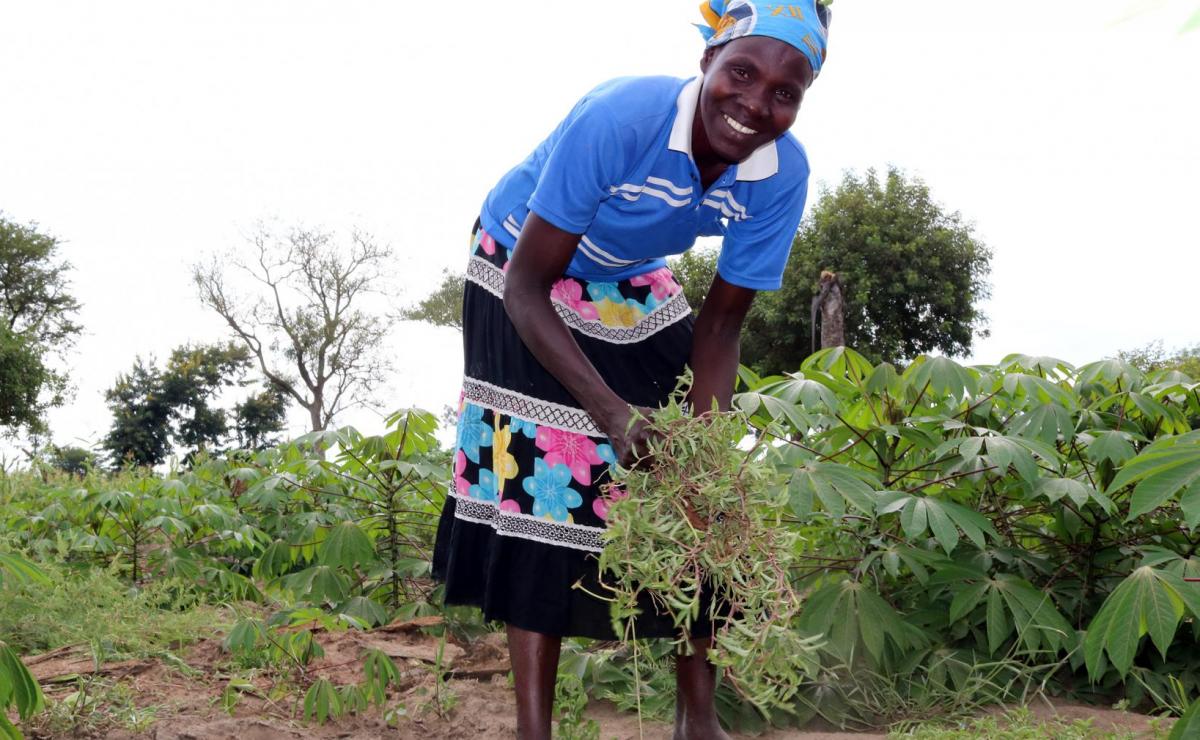Backyard gardening is improving food security and nutrition among refugees in Palorinya settlement

Every month, each refugee receives a food ratio of 8 kilograms, 6 of these are of maize flour while the 2 are for beans. It’s on this quantity of food that one is supposed to survive for a whole month as they patiently wait for the next ratio from the World Food Programme.
However, this quantity of food can hardly be enough to take an adult through a whole month. It can also hardly meet the nutritional requirements to keep one healthy and strong.
Peace Women’s Group ventured in backyard farming to acquire more and a variety of food for their families. The group of 15 women found it necessary for their children to feed on a balanced diet for a proper and healthy growth. When they heard about a training opportunity from the Lutheran World Federation (LWF) with funds from the the Bureau of Population, Refugees, and Migration (PRM) on backyard gardening and improved agronomic practices, the group didn’t think twice about applying.
“In April 2018, we started our 2 weeks’ training in backyard gardening, improved agronomic practices, farmer filed school and VSLA concepts methodologies.” Says Oliver Gbwolo, the Chairperson for Peace Women’s Group. She continues to explain that they thought the training on backyard gardening would be of great importance to them since they had no access to farmland but each only had a 30 x 30 metre plot on which they accommodated their families and hoped to use the little left for gardening.
After the training, the group received a farming start-up kit comprising of food crop seeds like tomatoes, onions, cabbage, maize, soya beans and simsim as well as farming tools. The 15 women distributed the material among themselves and started farming in April 2018.
In September 2018, the group harvested their first yield “We distributed the yield among ourselves and decided to use it to feed our families, keep some in our group silo for future consumption and sell for the rest for an income.” “With our yields, our families started to have enough food, our diet improved by far and our children started to look better and much healthier.” Says Cecilia Juru, a member of Peace Group.
Juru describes that “Unlike previously when our main diet comprised of maize flour and beans only, we started enjoying a variety of foods like cabbage, soya beans, simsim and tomatoes. We also have at least three meals a day unlike before when we would have only a single meal.”
When the group harvests more than they can consume, they keep the rest for future consumption and also sell off some to members of their community. “Food is highly demanded here, so we sell off some of our harvests, invest the money in our savings group.” says Juru who adds that members can then have the opportunity to get a loan from the savings group to meet their financial demands and also invest in small businesses to improve their livelihoods.

